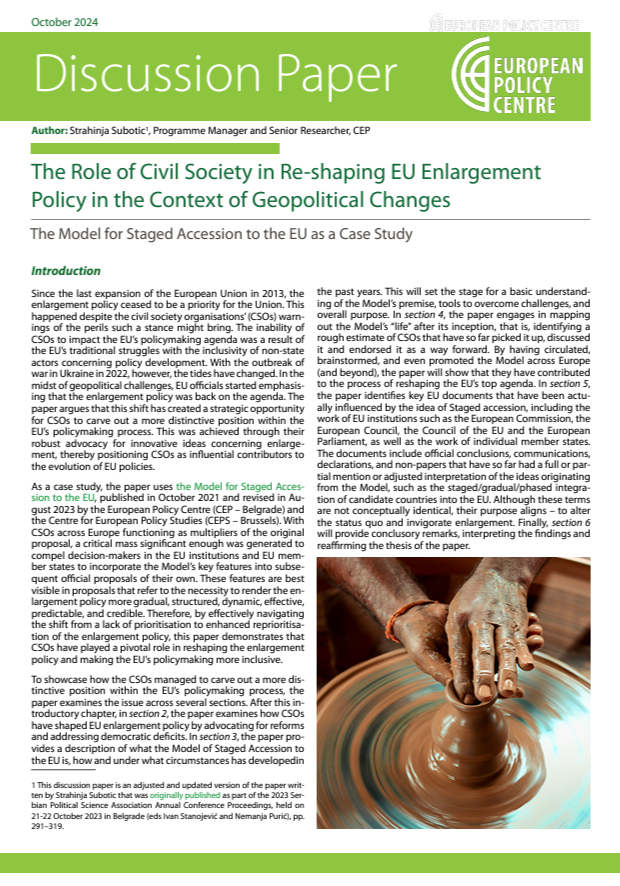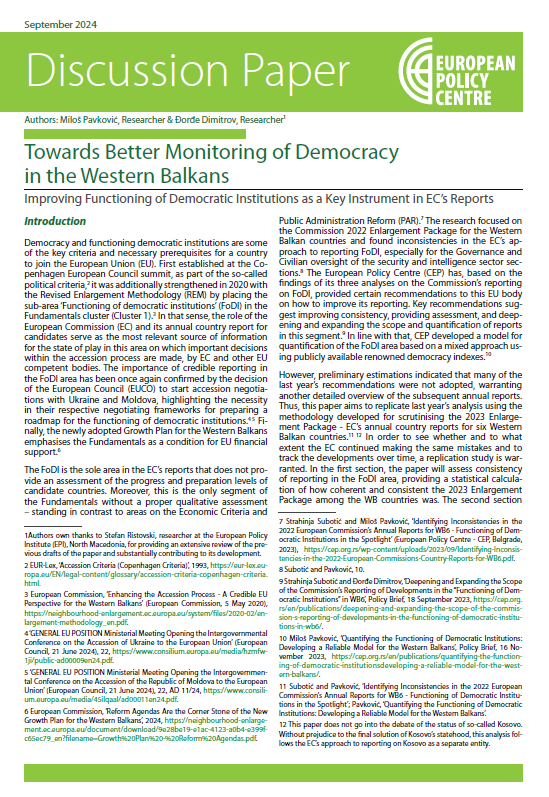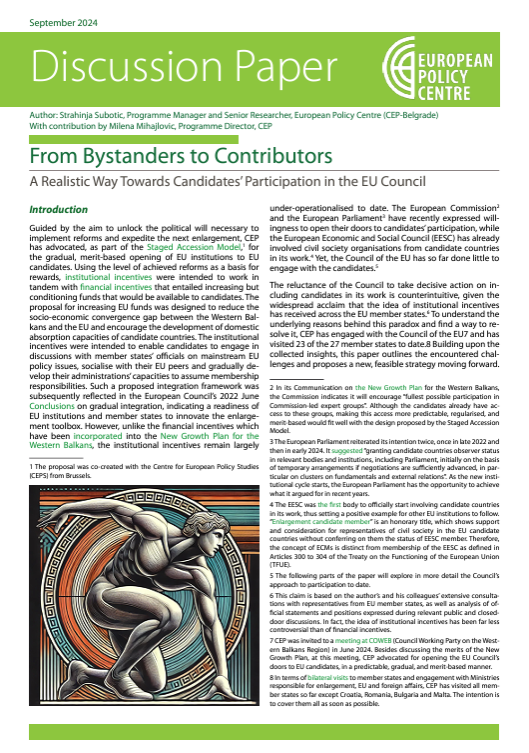Headquarters: Svetog Nauma 7, 11000
Office address: Đorđa Vajferta 13, 11000
Phone:: +381 11 4529 323
This discussion paper argues that the current dynamics in Serbia’s EU accession talks and the existing modes of interaction between the Serbian government, civil society and European Commission (EC) are not conducive to swift and sustainable progress on the EU track.
Serbia should step up its efforts to build up its institutional capacities and reinvent effective mechanisms for evidence-based and inclusive policymaking. Open dialogue between the government and civil society , as well as transparency in the accession process, are prerequisites in this regard. Serbia can and should do more to meet these preconditions if it is to effectively enforce the legislation aligned with the EU acquis and ensure collective ownership of this process, with the citizens aware and informed about the benefits and constraints of EU membership. This requires a reset of the relationship between the state and CSOs by (re)building mutual trust and raising the established patterns of cooperation to a higher level. The EC/EU should consider disclosing the findings of its expert/peer review missions to the public in order to maintain pressure on the Serbian executive in the wake of the more demanding phase in EU accession negotiations. This would also help to make the public debate on Serbia’s EU membership transparent and substantiated with facts, thus increasing the legitimacy of the accession process.


